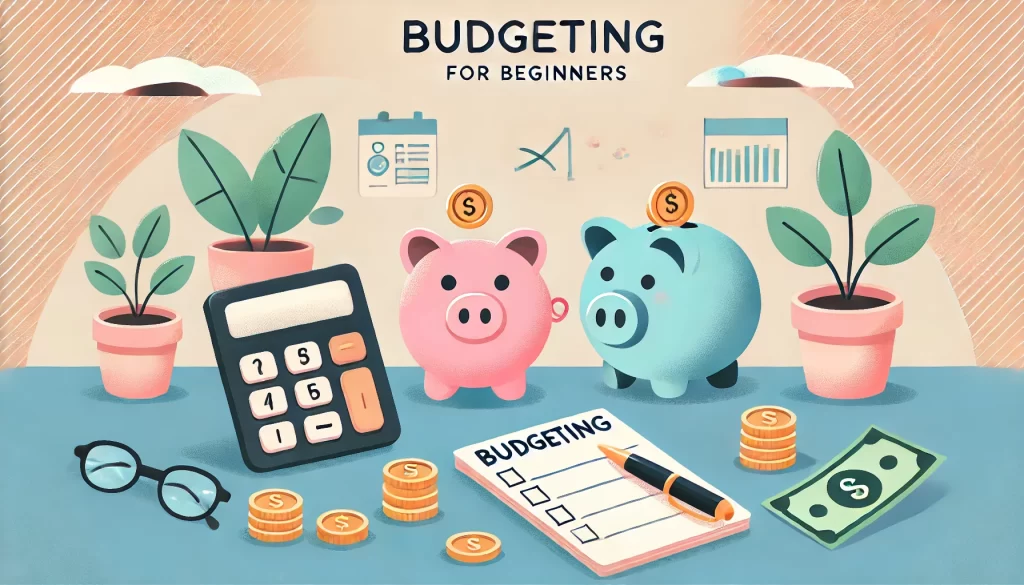Creating a budget can seem overwhelming, especially if you’re new to it. But, it’s a powerful tool to take control of your finances and save money. Whether you want to pay off debt, save for a big purchase, or stretch your budget, a well-made budget is key. Let’s explore the basics of budgeting for beginners so you can start saving today!
What is Budgeting?
Budgeting is about making a plan for your money. This plan ensures you have enough for what you need and saves for the future. By tracking your income and expenses, you can make smart choices on where to cut back and how to use your money for your goals.
Why Budgeting is Important
Ever wondered where your money went at the end of the month? You’re not alone. Many struggle with managing their finances, leading to stress and anxiety. Budgeting gives you a clear view of your finances, avoiding these issues.
With a budget, you can:
- Track your spending: See where your money goes and find ways to save.
- Set financial goals: Prioritize your financial objectives, like saving for a vacation or paying off debt.
- Avoid debt: Plan your spending to avoid using credit cards or loans for unexpected costs.
- Reduce stress: A budget gives you peace of mind, knowing you’re in control of your finances.
Steps to Create a Budget
Creating a budget is easy and straightforward. Here’s how to get started:
1. Determine Your Income
First, figure out your monthly income. This includes your salary, side income, and other revenue sources. Remember to use your net income, which is your total income after taxes and deductions.
2. List Your Expenses
Next, list all your monthly expenses. Include fixed costs like rent and utilities, and variable costs like groceries and entertainment. Don’t forget to include occasional expenses, like car maintenance or medical bills.
3. Categorize Your Spending
Group your expenses into categories, like housing, food, and transportation. This helps you see where you’re spending and where you can cut back.
4. Set Financial Goals
Now, set financial goals based on your income and expenses. These goals can be short-term or long-term. Make sure they’re realistic and achievable, and prioritize them based on your situation.
5. Create Your Budget
With your goals in mind, allocate your income to cover essential expenses and goals. Set aside money for non-essential expenses too.
6. Track Your Spending
Use a budgeting app or spreadsheet to track your spending. This helps you stay on track and make adjustments as needed.
7. Review and Adjust Your Budget
Your budget should change with your life. Review your spending each month and adjust your budget accordingly. If you overspent, cut back next month. If you have extra, put it towards your goals.
Tips for Successful Budgeting
Budgeting is a skill that takes time to master, but with a few tips, you can make the process easier and more effective:
- Be realistic: Don’t set yourself up for failure by creating an overly strict budget. Make sure your budget allows for some flexibility and includes money for fun and leisure.
- Use cash for discretionary spending: If you struggle with overspending on non-essential items, try using cash instead of credit or debit cards. When the cash is gone, you’ll know it’s time to stop spending.
- Automate your savings: Set up automatic transfers to your savings account to ensure you’re consistently putting money aside for your goals.
- Involve your family: If you share finances with a partner or family, make sure everyone is on the same page. Budgeting is much easier when everyone is working toward the same goals.
- Celebrate small victories: Reaching your financial goals can take time, so be sure to celebrate small milestones along the way. This will help keep you motivated and on track.
Common Budgeting Mistakes to Avoid
Even with the best intentions, it’s easy to make mistakes when budgeting. Here are some common pitfalls to watch out for:
- Not accounting for irregular expenses: It’s easy to forget about expenses that don’t occur every month, like car maintenance or annual subscriptions. Make sure to include these in your budget.
- Underestimating expenses: Be honest with yourself about how much you spend. It’s better to overestimate your expenses and have extra money left over than to run out of funds halfway through the month.
- Not adjusting your budget: Your financial situation can change, so it’s important to review and adjust your budget regularly. If you get a raise or take on a new expense, update your budget to reflect these changes.
- Giving up too soon: Budgeting can be challenging, especially in the beginning. Don’t get discouraged if you slip up or find it difficult to stick to your budget. Keep at it, and over time, it will become easier.
Start Saving Today!
Budgeting is a powerful tool that can help you take control of your finances and start saving money. By creating a budget and sticking to it, you’ll be able to achieve your financial goals and enjoy greater peace of mind. Whether you’re saving for a rainy day, paying off debt, or planning for the future, the sooner you start budgeting, the sooner you’ll see results. So why wait? Start budgeting for beginners today and take the first step toward a brighter financial future!






